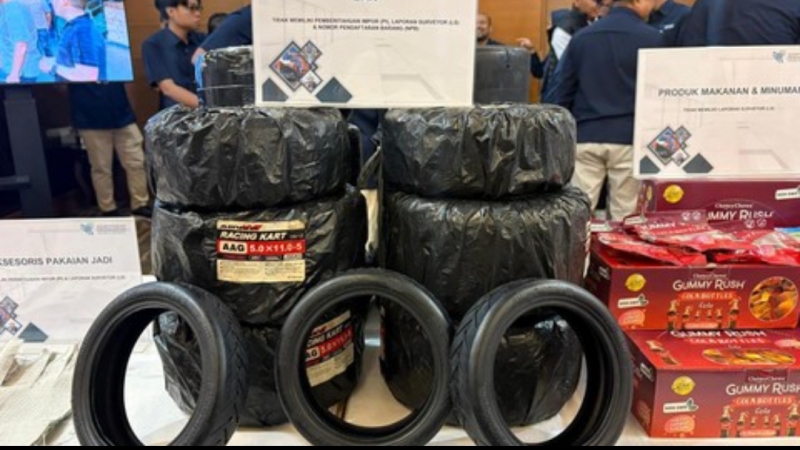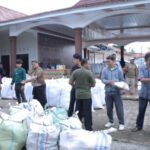The Ministry of Trade (Kemendag) has confiscated illegally imported goods valued at Rp 26.4 billion from countries such as China, Malaysia, and France. These illegal goods were discovered during inspections in four regions: Surabaya, Makassar, Medan, and Bekasi.
The Minister of Trade stated that the seizures resulted from monitoring conducted by the Directorate General of Consumer Protection and Trade Order (PKTN) and the Trade Order Supervision Agency (BPTN) from January to July 2025.
“The inspections were carried out from January to July 2025 through post-border customs surveillance. A total of 5,766 Import Notification Documents (PIB) were examined,” the Minister said during an inspection results presentation at the Ministry of Trade office in Jakarta.
Out of these, 5,449 PIBs from 1,424 businesses were deemed compliant based on the e-reporting system. Meanwhile, 317 PIBs from 147 businesses underwent further field inspections. As a result, 118 PIBs from 52 businesses were found non-compliant, while the remaining 199 PIBs from 95 businesses met the requirements.
“Most of the illegally imported goods originated from China, France, Vietnam, Saudi Arabia, South Korea, and Malaysia,” the Minister added.
The non-compliant goods included plastic raw materials, cosmetics, household appliances, food and beverage products, traditional medicines, health supplements, forestry and animal products, certain chemicals, ceramics, electronics, sheet glass, textiles, and Measuring, Weighing, and Testing Equipment (UTTP).
The total customs value of the illegal goods reached approximately Rp 26.4 billion.
“Businesses found in violation have been penalized with, first, warning letters issued to 14 businesses; second, orders to withdraw and destroy goods for 18 businesses; and third, temporary suspension of customs access for 2 businesses,” the Minister explained.
He emphasized that all enforcement actions were based on Government Regulation (PP) No. 29 of 2021 concerning trade sector administration. Under these rules, penalties may include written reprimands, product recalls, temporary business suspensions, or license revocations.
“Goods that do not meet the requirements face penalties such as trade bans, recalls from distribution, and destruction,” the Minister stated.






